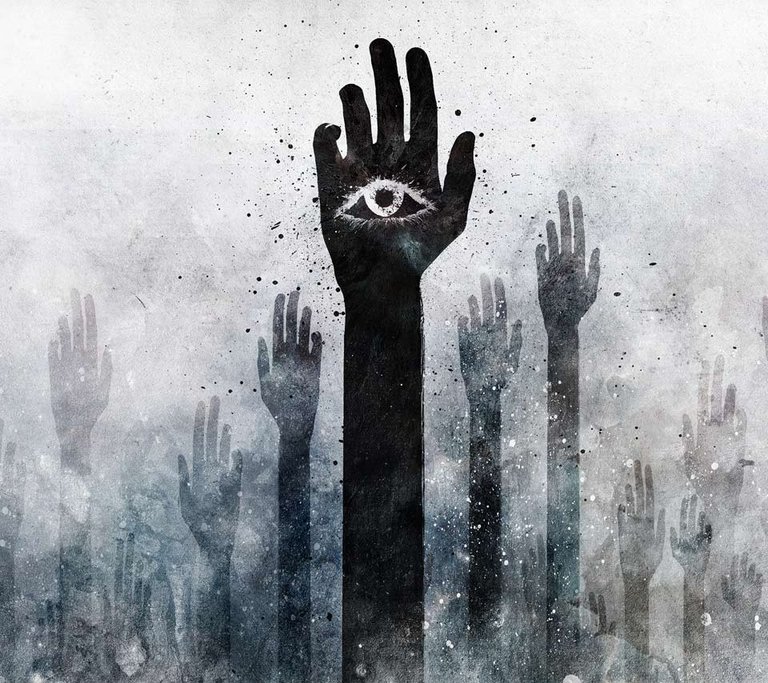
The Aztecs believed that droughts were caused by insufficient child sacrifices to the rain god Tlaloc. Medieval doctors recommended bloodletting for most common ailments. Giordano Bruno was burned at the stake for suggesting that our sun might just be another star. Modern Americans don’t think roads would be built if government didn’t build them for us. Human beings have a long history of believing the ridiculous when no evidence to the contrary is available to them.
A ridiculous belief thrives on just one factor: momentum. All a ridiculous belief needs to do to propagate itself is to be ingrained. Once it has seeped into the public consciousness it becomes common sense, and to call into question one piece of common sense is akin to casting doubt on all of a society’s most cherished values. People simply won’t let you subject them to that level of cognitive dissonance. They would rather see you burned for your heresy.
One such belief, currently well established, is that government solves problems. Government doesn’t solve problems. Government takes your money from you, then throws it at problems. Occasionally government will hire someone to solve problems. They will overpay them, give them full benefits, full pension, full time for life with virtually zero accountability. More and more, government is embracing the obvious, that problems are solved more efficiently by the private sector. By farming out the vast majority of its problem solving to corporate America, the government has relegated itself to the role of a parasitical middle man, a rent-seeking paper pusher with no legitimate function.

State is the name of the coldest of all cold monsters. Coldly it lies; and this lie slips from its mouth: "I, the state, am the people."
-Nietzsche
The government has no legitimate purpose, and thus no legitimate authority. Some will claim that government has a duty to uphold and protect our rights and liberties, but isn’t government the primary threat to them? Don’t be fooled, the flags, the songs, the promises of constitutional protections are just the old odd ends with which the state clothes its naked villainy.
As members of the Libertarian Party, as well as the larger libertarian movement, it is our sworn duty to challenge the cult of the omnipotent state. We have taken up the clarion call of resistance, and we must not rest until our foe lies defeated and disgraced.
The state itself is powerless. Deprived of its throngs of adherents it is merely a hollow concept, a set of statutes bound in volumes on a dusty shelf. It is only through the faith of its followers that the cult of the omnipotent state gains the hubris to believe it rules the people justly, that it is the noble shepherd of our wayward flock. It is only with our stolen capital that it seeks to control the resources, the people, the very climate of our world.
If we were to cease to believe the lies of the state, it could be brought crashing down overnight. If the people were to rise up as one, and reject this cult, and its creed, we could rid ourselves of its burden right then and there. We can’t though. This cult has no front door to walk out of. Our enemy has no charismatic leader to depose. There is no detox, debriefing, or deprogramming from the cult of the state. There is no viable alternative to the state because the state is unlike any cult that existed before it.
Our enemy, the state, is not merely a cult, not anymore. Your average cult is as well organized as a two-bit pyramid scheme, the state is organized like a well oiled machine. A cult tends to be centered around a single demagogue, the state has legions of demagogues. If you cut off the head of a cult, it withers and dies. Cut off the head of a state, and three will grow in its place. The state is nothing so fragile as a cult, it has no single point of failure. The state has many redundancies built in because the organization of the state could best be compared to the organization of a computer system, which borrowed its name from a concept in abstract mathematics.
Our enemy is a Network
I agree that the state is a "network," but, more precisely, it's a set of cybernetic systems, a group of pyramidal hierarchical networks. The state's hierarchical networks are primarily composed of sociopaths, and their networks exhibit coercive/malevolent emergence, whereas libertarian networks exhibit voluntary/benevolent "market" emergence. I strongly recommend Mark Newman's video "What Networks Can Tell Us About The World" for more about network effects:
I wholeheartedly agree that the authoritarian model of the state perversely incentivizes sociopathic behavior. Thanks for the video link, I'm watching it right now.
And indeed, "The State" is a cult, and its members are the most thoroughly brainwashed of any cult in existence.
I think it's caused by their perspective, most people can't comprehend life outside the state. Crypto is changing all that, by providing tools to allow people to transact and interact outside of the state system, we're opening people's eyes to the world of Anarchy.
Excellent commentary. The first paragraph reminds me of Nick Bostrom's "Parable of the Dragon Tyrant."